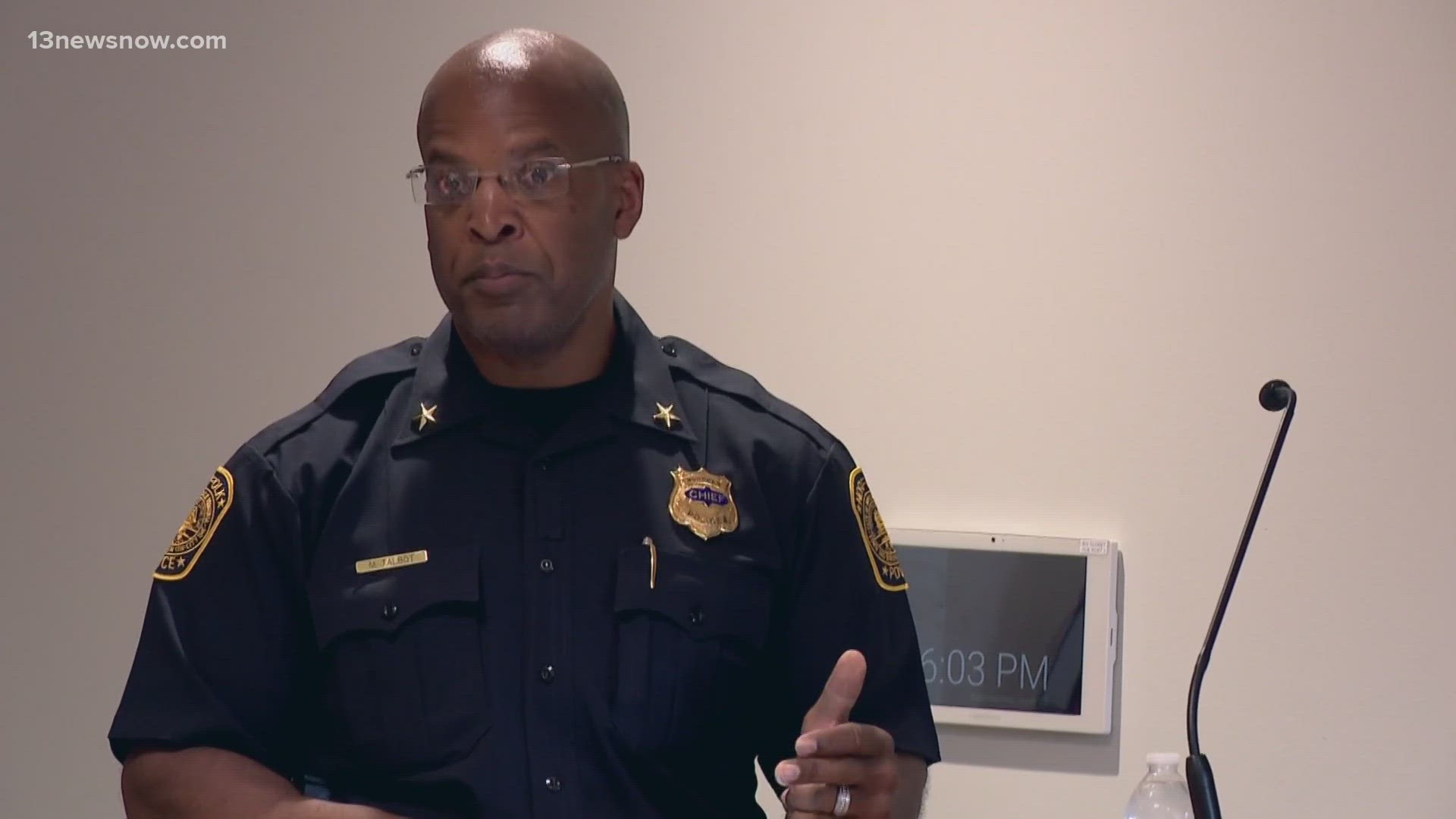NORFOLK, Va. — Wednesday night, Norfolk Police Chief Mark Talbot laid out his plan to cut down on crime in the city two months into the job.
He and Councilwoman Danica Royster hosted a “meet the chief” event in Superward 7—which includes Norview, Berkeley and more.
Although Talbot took the job amidst controversy two months ago, he told people living in Norfolk that he is committed to keeping all of them safe.
"I’m proud to be here," he said.
RELATED: Norfolk auditor finds city manager 'did not violate city code' in police chief hiring process
Wednesday night, around 30 people gathered at the Jordan-Newby library to hear Talbot's plan.
So far this year, Norfolk police have investigated 17 homicides. That's down from 28 this time last year.
"The complexity of our strategy and our thinking has to match the complexity of the crime challenge," he said.
Talbot said cutting down on crime is not an easy path, otherwise, they would’ve done it already.
However, he said there are clear steps to turn things around—starting with taking extreme responsibility for the condition of the city and embracing legitimacy.
"When we are doing our work, we need to do our work with a great deal of care and concern," he said, pointing at police building relationships and being transparent.
He also said they will use a data-driven approach and shift to risk-based problem solving, meaning looking at which neighborhoods need the most help.
"Don’t wait until the body drops. Go there and prevent the death," he said, highlighting providing resources, putting a spotlight on suffering and removing repeat offenders so the neighborhood can thrive.
Talbot also wants to install what he calls "geographic policing."
"You can’t police a city you don’t love. You can’t police a city you don’t understand. You will fail," he said.
He went on to talk about controlling impact levels, by getting repeat violent offenders off the streets. Talbot also highlighted the importance of building partnerships with other agencies and hyper-focused leadership.
He says above all, the community and police have to work together through relational policing.
Talbot encouraged the crowd to call them out when they see something wrong, but also shout them out when they're doing the right thing.
"Holding each other accountable and supporting each other while we’re doing this," Talbot said.
He encouraged people in the city to have an optimistic stance when it comes to public safety.
"The last thing you need is a police department that doesn’t believe they can make a difference," he said.

